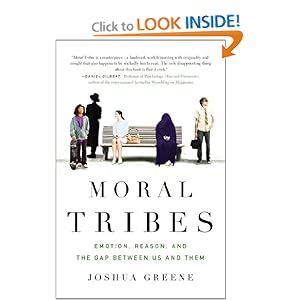
Nagel, the author of “most despised book” Mind & Cosmos: Why the Materialist Neo-Darwinian Conception of Nature Is Almost Certainly False, reviewing Harvard evolutionary psychologist Joshua Greene’s Moral Tribes: Emotion, Reason, and the Gap Between Us and Them, offers
One of the hardest questions for moral theory is whether the values tied to the personal point of view, such as partiality toward oneself and one’s family, and special responsibility for refraining from direct harm to others, should be part of the foundation of morality or should be admitted only to the extent that they can be justified from an impersonal standpoint such as that of impartial utilitarianism.
To dismiss our counter-utilitarian attachments and intuitions, as Greene does, as “species-typical moral limitations,”* which must be seen as obstacles to the realization of the moral ideal, is to identify ideal morality as something more, or perhaps less, than human. A more attractive alternative would be to combine some of the values that form a natural part of the personal point of view with universal and impartial values of the kind Greene believes that we are also capable of. A project of this kind would require more subtlety about the different possible interpretations of impartiality than Greene displays: he identifies impartiality with happiness-maximization, and his brief discussions of Kant and Rawls show that he does not really understand their alternative conceptions—though I suspect that even if he did, he would still reject them in favor of utilitarianism.
…
Greene’s debunking arguments add an empirical dimension to a venerable utilitarian tradition, but they certainly do not settle the question. It is possible to defend a universal system of individual rights as the expression of a moral point of view that accords to each individual a sphere of autonomy in the conduct of life, free from interference by others, defined in such a way that the same sphere of autonomy can be accorded to everyone without inconsistency.
*Note: “species-typical moral limitations”—as opposed to what? A tomcat?A cobra? An insect?
Hat tip: Stephanie West Allen at Brains on Purpose
